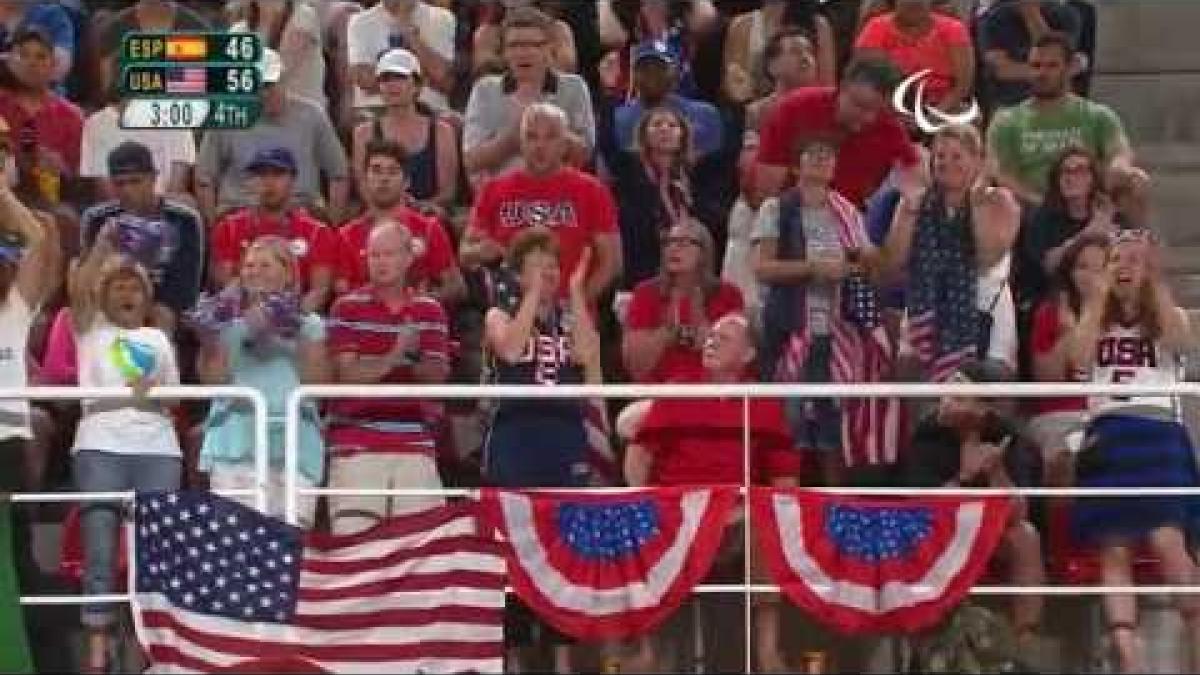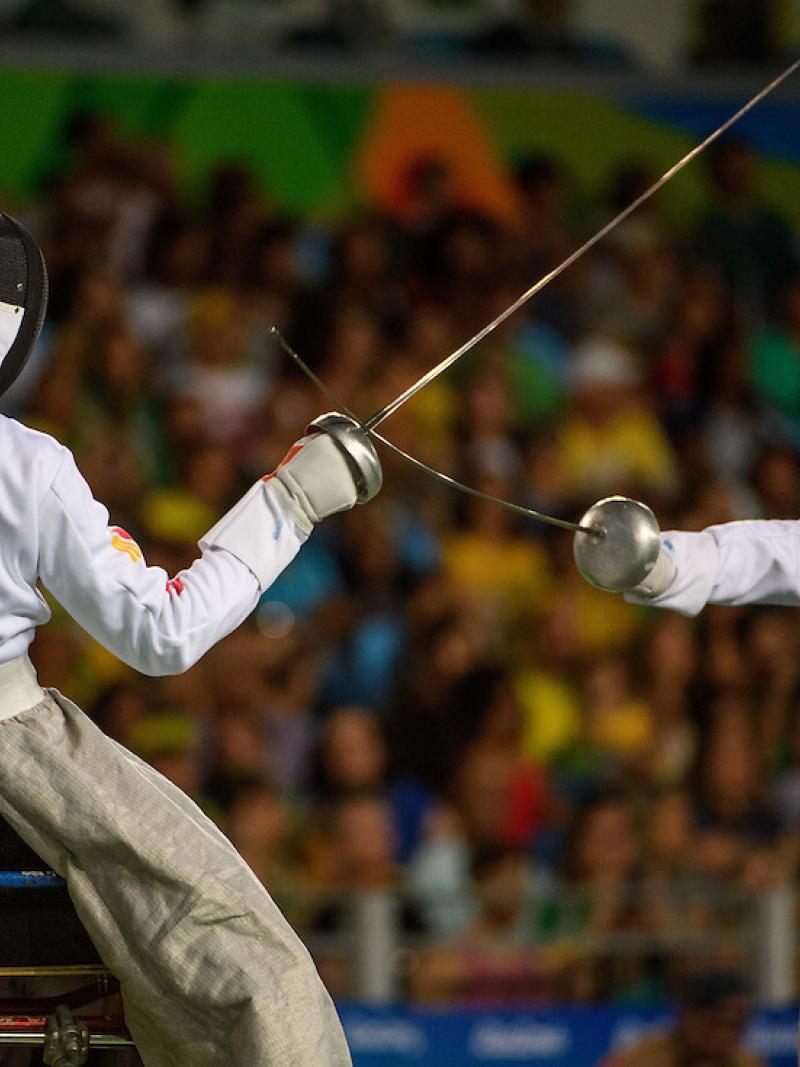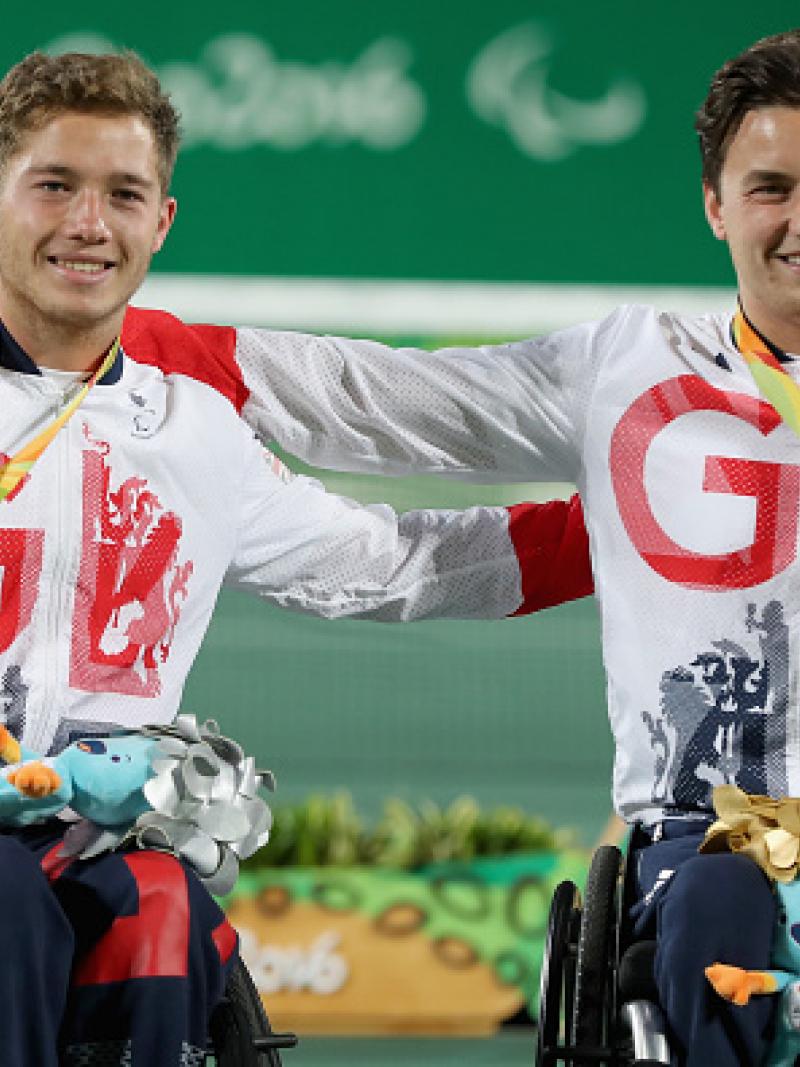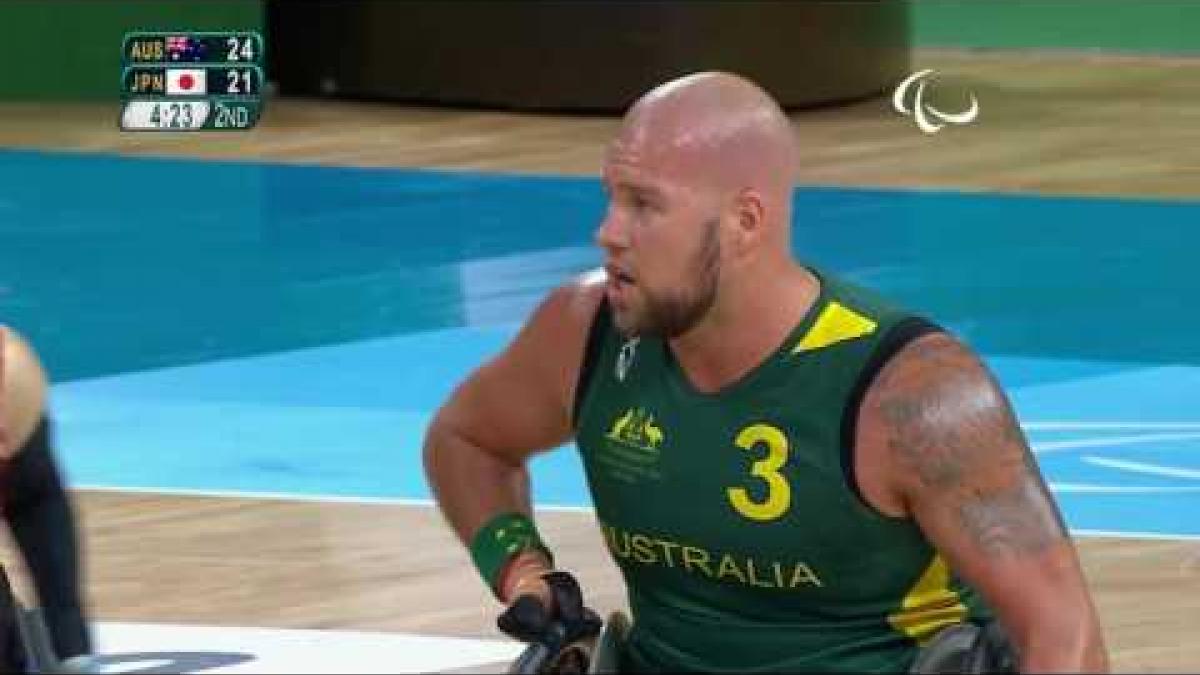Wheelchair basketball: Five things learned in 2016
The year saw development in Africa, as well as anticipating match-ups heading into the 2017 Europeans. 25 Dec 2016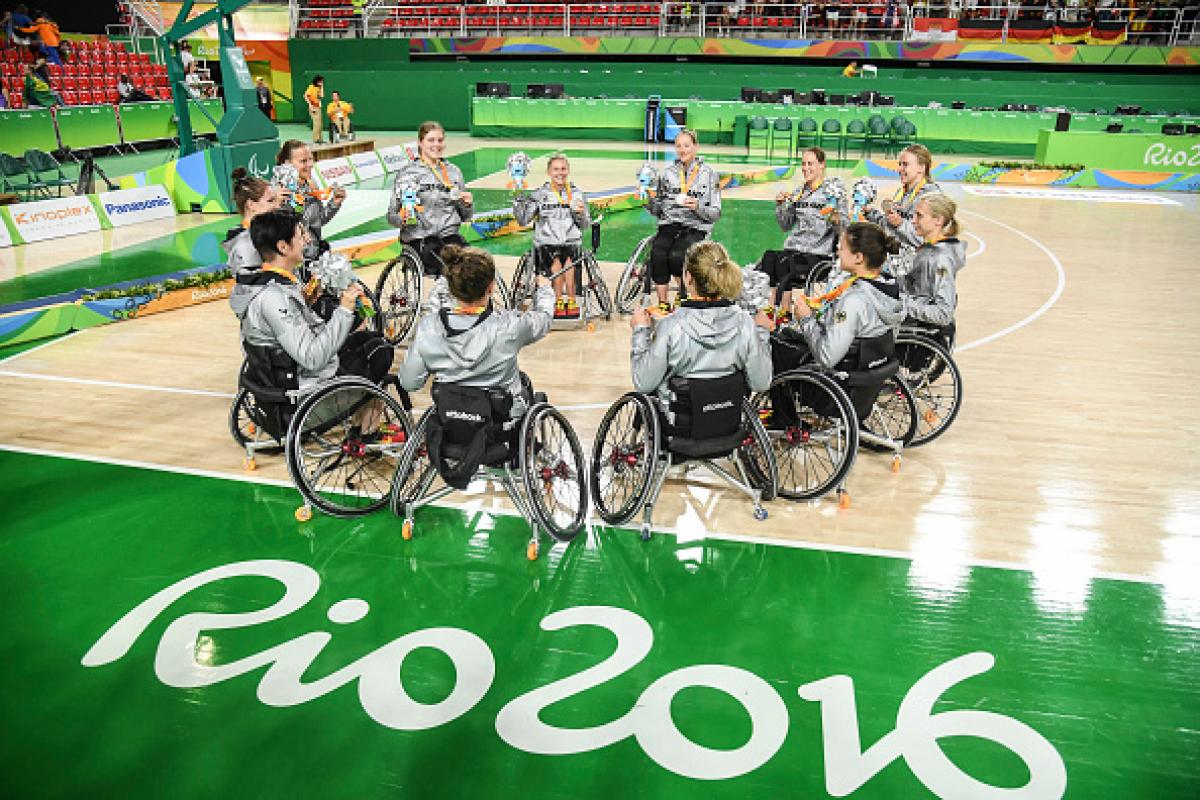
Germany's women's wheelchair basketball team won the silver medal at the Rio 2016 Paralympic Games.
There was growth and development seen in the wheelchair basketball, as well as new Paralympic champions. Looking back at 2016, here are some things learned from the sport.
1. Algeria’s women team will encourage further growth in Africa
Algeria became the first African nation to field a women’s wheelchair basketball team at the Paralympic Games after they secured the sole spot on offer from the International Wheelchair Basketball Federation (IWBF) Africa Championship.
Their debut game at Rio 2016 was against hosts Brazil in front of nearly 6,000 people, ending in a 66 point defeat. They went on to finish their four group games and classification playoff without a win. Despite the losses, captain Djamila Khemgani was an instrumental leader with a total of 40 tournament points. Algeria’s presence made history in the sport at the Paralympic Games, and according to the IWBF will lay a pathway for more nations to compete in future African qualification tournaments.
2. German women still have European edge
The rivalry between European giants Germany and the Netherlands was played out in a mouth-watering semi-final at the Rio Olympic Arena. Germany advanced and left Rio with silver, while the Netherlands smashed Great Britain for the bronze.
Mareike Miller recorded a game-high 25 points and 12 rebounds in the semi-final, supported by captain Marina Mohnen who also picked up a double-double. While for the Dutch, Mariska Beijer, who had averaged 19 points per game all tournament, was kept quiet with only eight points.
While both squads are expected to lose some veterans ahead of Tokyo 2020, players such as Miller and Beijer are expected to return for another run at Paralympic gold. But first, the two are expected to clash in July for the European Championships in Tenerife, Spain, where Germany look to retain their title.
3. Ozgur Gurbulak and Terry Bywater are clutch shooters
Turkey may have missed out on a podium finish at Rio 2016, but their last game will be etched into the event’s folklore.
Led by the tournament’s top-point scorer Ozgur Gurbulak, who scored 171 points in almost five hours of playing time at Rio, their bronze medal final against Great Britain finished in a deadlock at the end of regular time.
Numerous lead changes filled the final minutes, with Gurbulak and Great Britain veteran Terry Bywater finding the basket when it mattered most.
Despite the heartbreak, Turkey showed they are moving closer to a podium finish at the Paralympics. A two-point win against Australia in their second group game, coupled with a narrow loss to eventual runners-up Spain and a 67-46 defeat of Netherlands gives them plenty of hope that the programme is headed in the right direction for Tokyo in four years’ time.
4. Double delight in Zarzuela household
There was an overflow of emotion on court when Spain’s men beat Great Britain in the semi-final to be the first to qualify for the gold medal match. It was the moment they realised that they were going home with a Paralympic medal for the first ever time. Spain topped group A with four wins and a loss, beating medal hopefuls Australia in the preliminary stages, before eliminating Germany in the quarter-finals and then Great Britain.
Instrumental in their performance were the 29-year-old Zarzuela twins: 3-pointer Alejandro Zarzuela led the point scoring with a team high 147 tournament points (second overall to Gurbulak), eclipsing his brother Pablo, also a 3-pointer, who tallied 104 of his own. The pair averaged over 30 minutes of court time each for a combined 9 hours and 5 minutes across the tournament. In the final Alejandro scored an equal game high of 20 points, and seven rebounds, while Pablo added 16 and three assists.
They are sure ones to watch for when they take on their home European Championships in July.
5. US wheelchair basketball full of talent
Both the USA’s men and women’s team captured golds, completing a remarkable comeback from London 2012. The USA finished four years ago with one bronze medal between their two teams and used that as motivation to reclaim the top prize, in perhaps the most ruthless fashion.
The men’s team not only went through undefeated but put big margins on their opponents, scoring 614 tournament points while conceding only 349. The women’s team also finished without a loss on the back of the tournament’s top point scorer, Rebecca Murray who amassed 169 points, including 33 points - more than half of her team’s total - in the gold medal match against Germany.
The Paralympic champions will now spend the next four years working to defend their gold medals in Tokyo 2020.

 Facebook
Facebook
 Instagram
Instagram
 Twitter
Twitter
 Youtube
Youtube
 TikTok
TikTok
 Newsletter Subscribe
Newsletter Subscribe

